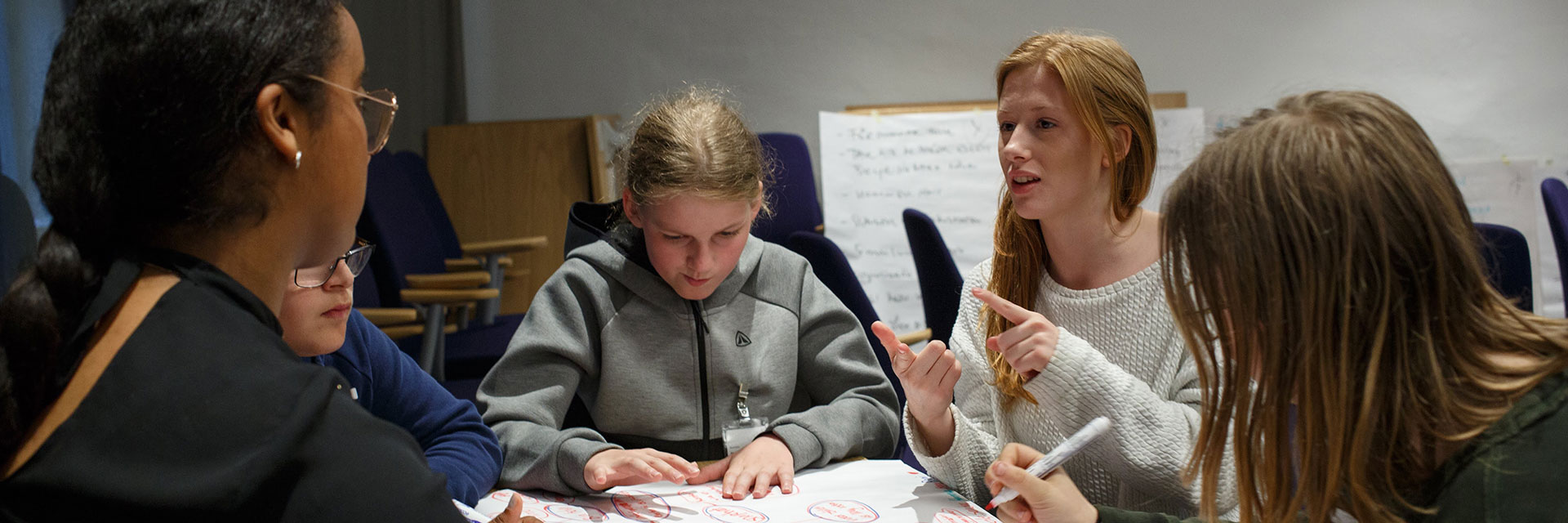Back-to-school time can be alternately exciting, fun and stressful, sometimes from one minute to the next, even in the same child. Although most kids will approach the school year with a few butterflies in their stomachs, some genuinely view the first day of school with more than just a bit of trepidation.
Elementary students on up to high schoolers are all subject to the social pecking order, as well as new subjects, teachers, classes and perhaps a new campus to navigate. Will they remember their locker combination? Will they have someone to sit with at lunch? Will they get picked last for sports teams in P.E.?
Ken Jones, a psychologist and director of behavioral health at Texas Health Arlington Memorial, says the return to school after a long break isn’t always something students eagerly anticipate.
“The transition from the relative freedom of a typical summer schedule to the highly structured world of school can be stressful for many children and teens,” he says. “Because not everyone experiences success within their school environment, whether socially or academically, it can be anxiety-provoking to return to a setting in which they may not feel good about themselves.”
According to an article published in the Western Journal of Medicine, anxiety is the most common type of psychiatric problem in children. In worldwide studies, researchers found that as many as 10 percent of children struggle with anxiety, while that rate climbs to between 12 and 20 percent in the United States. Anxiety is even more common for older students, with more than 31 percent of adolescents between the ages of 13 and 18 struggling with anxiety disorders. If left untreated, children with clinical anxiety can affect every area of their lives, leading to academic, social and family problems.
It’s important for parents to watch for signs that their kids are dealing with anxiety as they approach the first day of school.
“While a general sense of apprehension, along with sadness that the summer is drawing to a close can be absolutely normal, it is important to be aware and watch for serious signs of anxiety,” Jones explains. “Significant changes such as shifts in mood, isolation, upset stomach, sleep disturbance and high agitation can signal deeper levels of distress, and may warrant having your child assessed by a mental health professional.
“The key is for parents to listen and validate their child’s concerns before offering suggestions and support. Particular anxiety-provoking situations may necessitate different types of parental response, from support and encouragement for kids who seem overwhelmed with schoolwork, to monitoring and proactive intervention for children who are facing the fear associated with being bullied.”
Jones says there are many ways to address anxiety in children, but which method works best will differ from child to child and situation to situation.
“Most kids are pretty resilient, and although they may express some concerns or separation anxiety, they are usually able to successfully navigate the transitions of a new school year,” he says. “While learning to face and move beyond our fears provide important life lessons, sometimes children can get stuck in negative irrational thought patterns and ruminations.
“They may be thinking, ‘What if my teacher is mean? What if I don’t make any friends in my new school? What if I get bullied again?’ It is important to monitor and check in with your child. When you see signs a child is fearful or overly resistant to returning to school, ask questions and take the time to listen to what they have to say. It’s important to be supportive, but at the same time acknowledge their fears and help them find appropriate solutions.”
While it’s difficult for any parent to watch a child struggle with anxiety and fear, Jones says that awareness and affirmation are the best ways to make a positive impact.
“Parents’ anxieties during the return-to-school period are often picked up by children who are already dealing with their own end-of-summer angst,” he says. “For parents, awareness of their own stress levels and feelings during this time can be helpful. When children perceive their parents are stressed out, they often assume the parent is unavailable to support or listen to their needs.
“Also, find a balance between your expressing parental expectations and affirming your child’s inherent gifts and abilities. A sense of having disappointed a parent can weigh heavily on a child who is already struggling with the normal insecurities of the adolescent and teenage years. Affirmation can help to keep those channels of communication open and provide the window a parent needs to stay in touch with their child emotionally throughout the school year. Despite the well-documented power of peer relationships, children still crave the affirmation, encouragement, and understanding of a parent-figure, especially when they feel frustrated or anxious.”
If you suspect your child needs behavioral health support, Texas Health provides outpatient and inpatient care. For information on physicians and services near you, call the helpline 24/7 at 682-236-6023.

